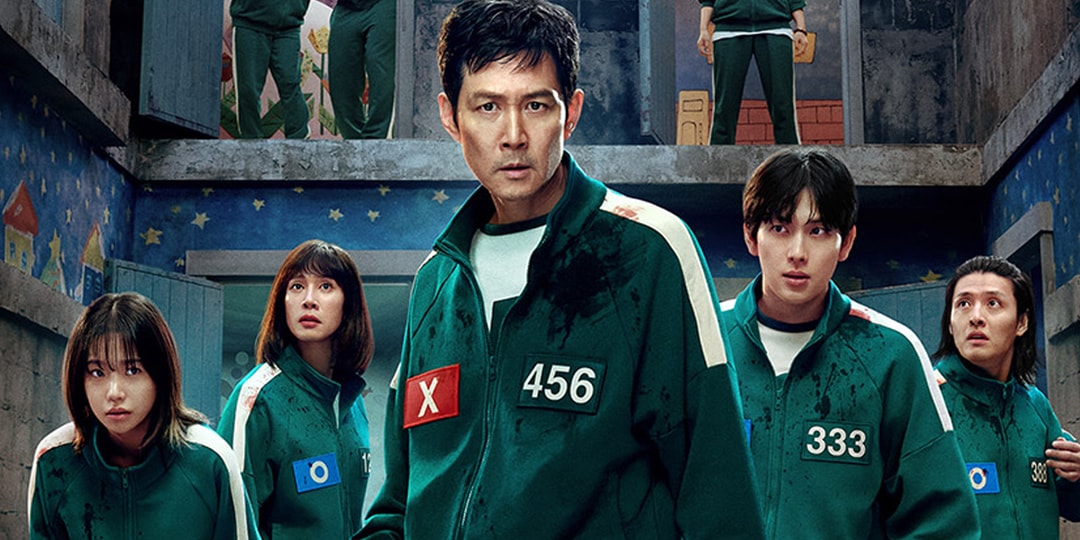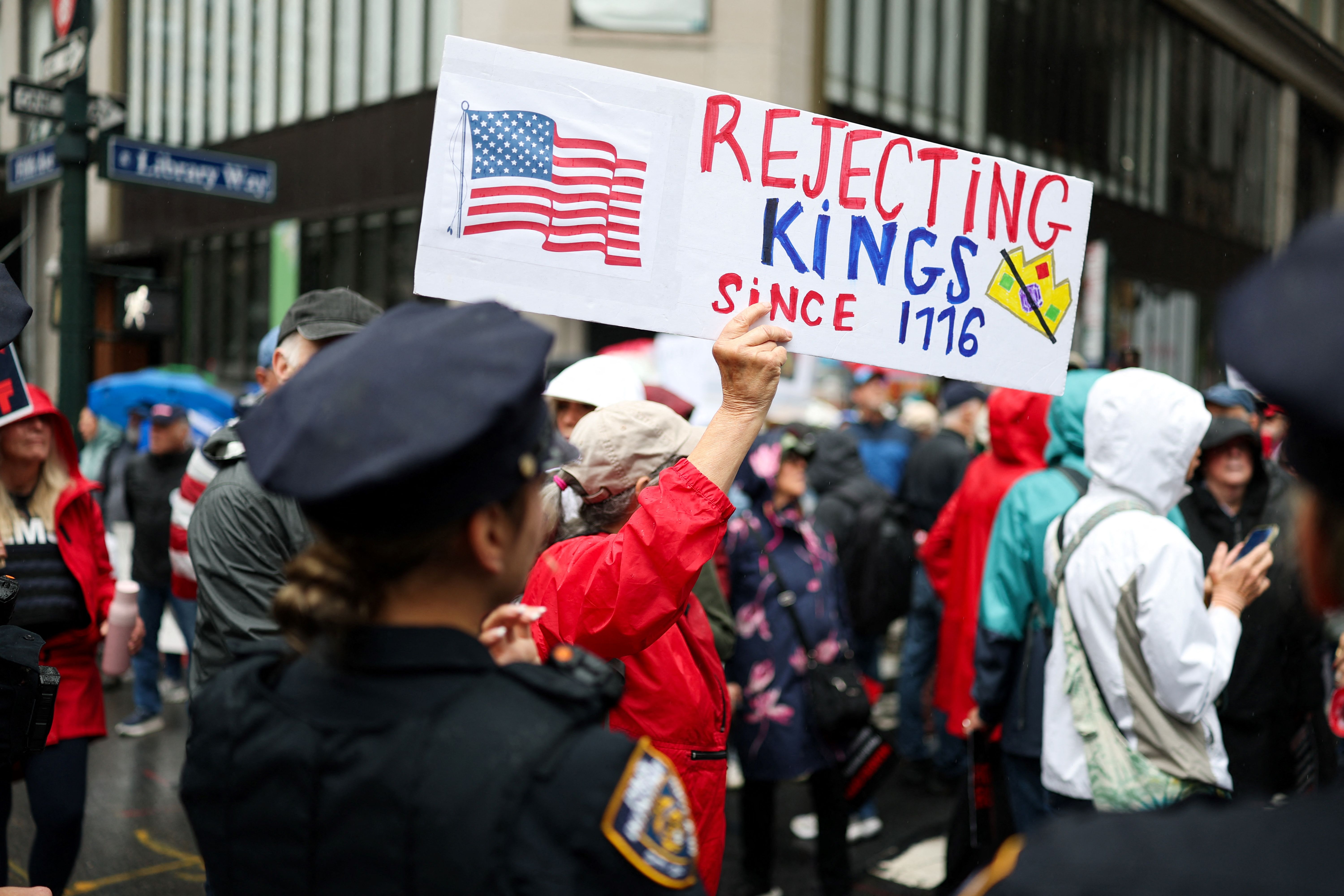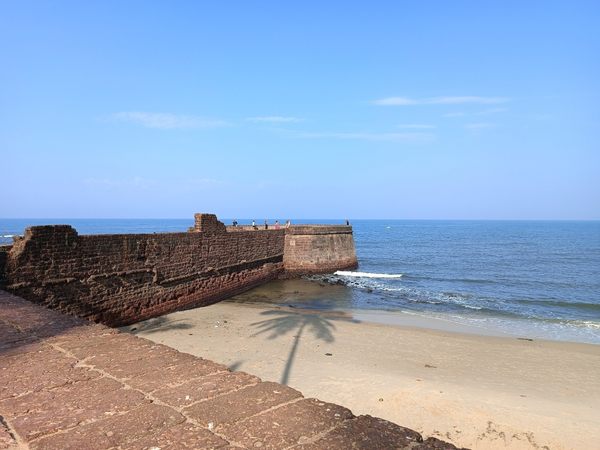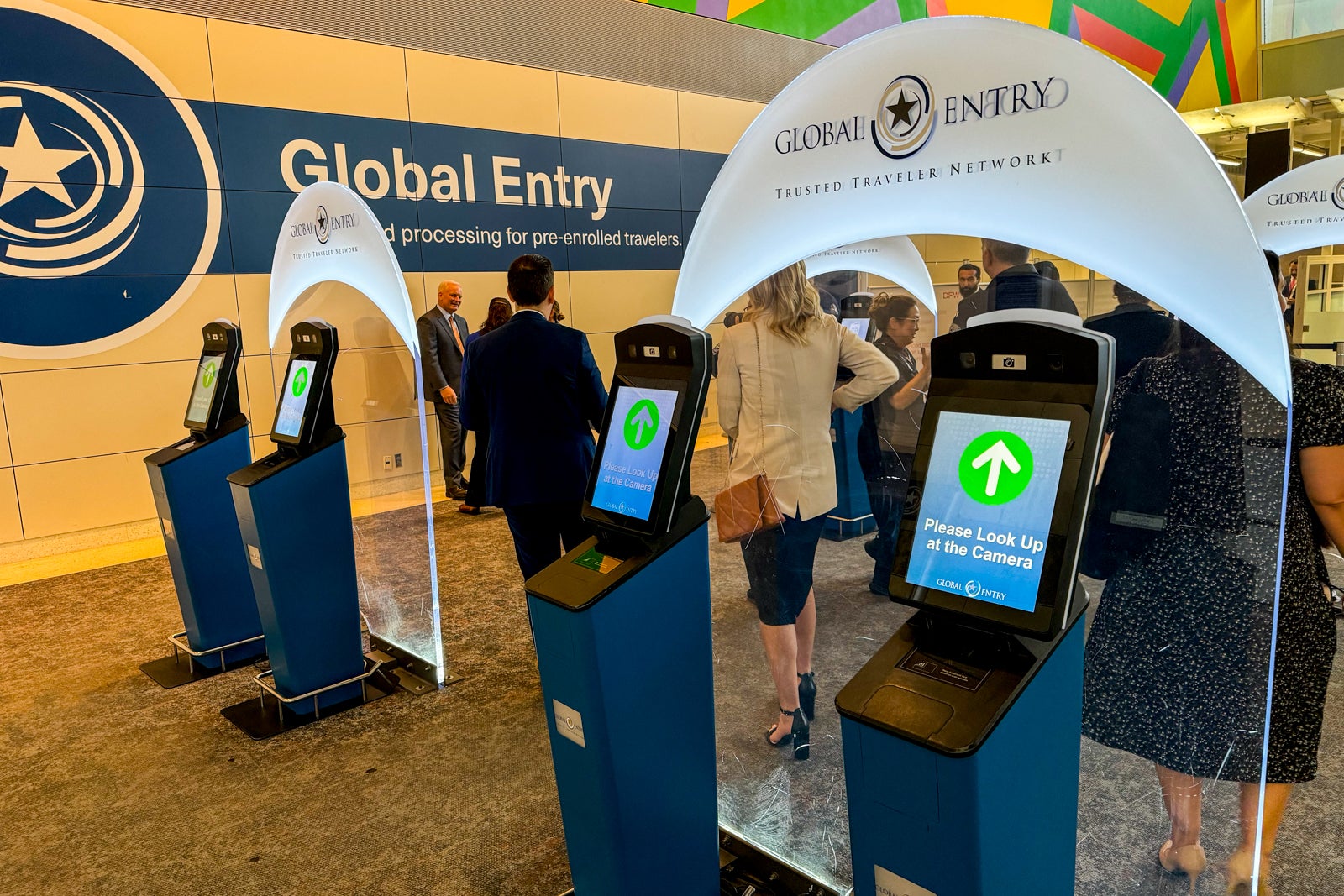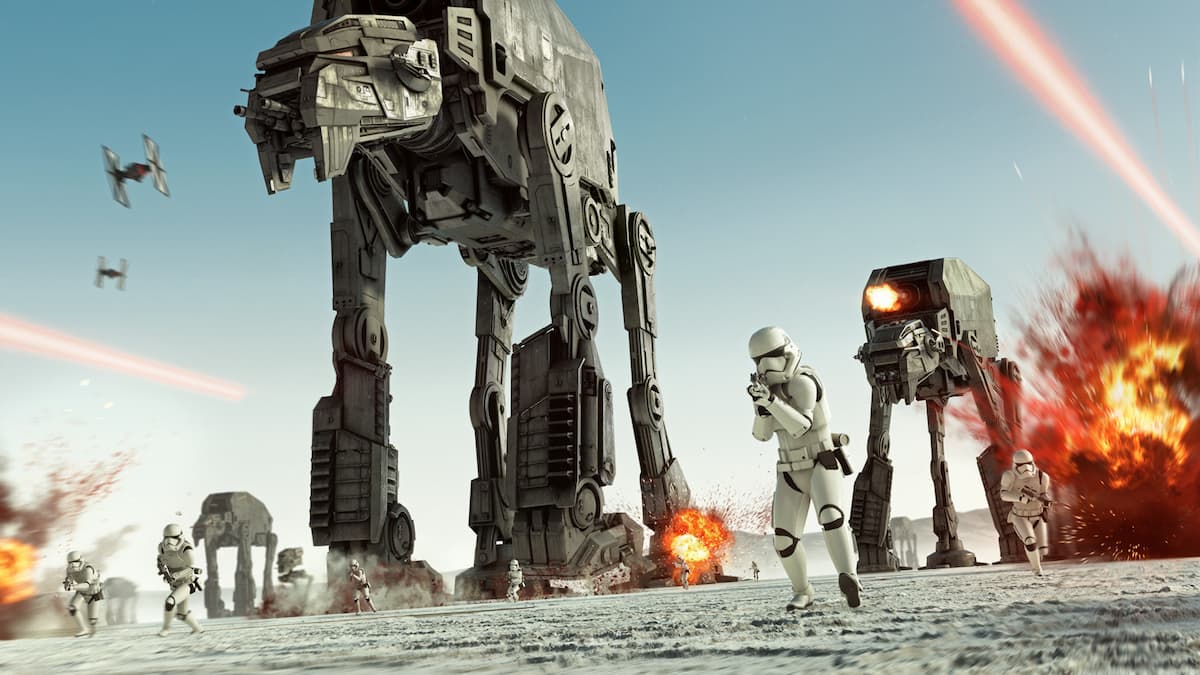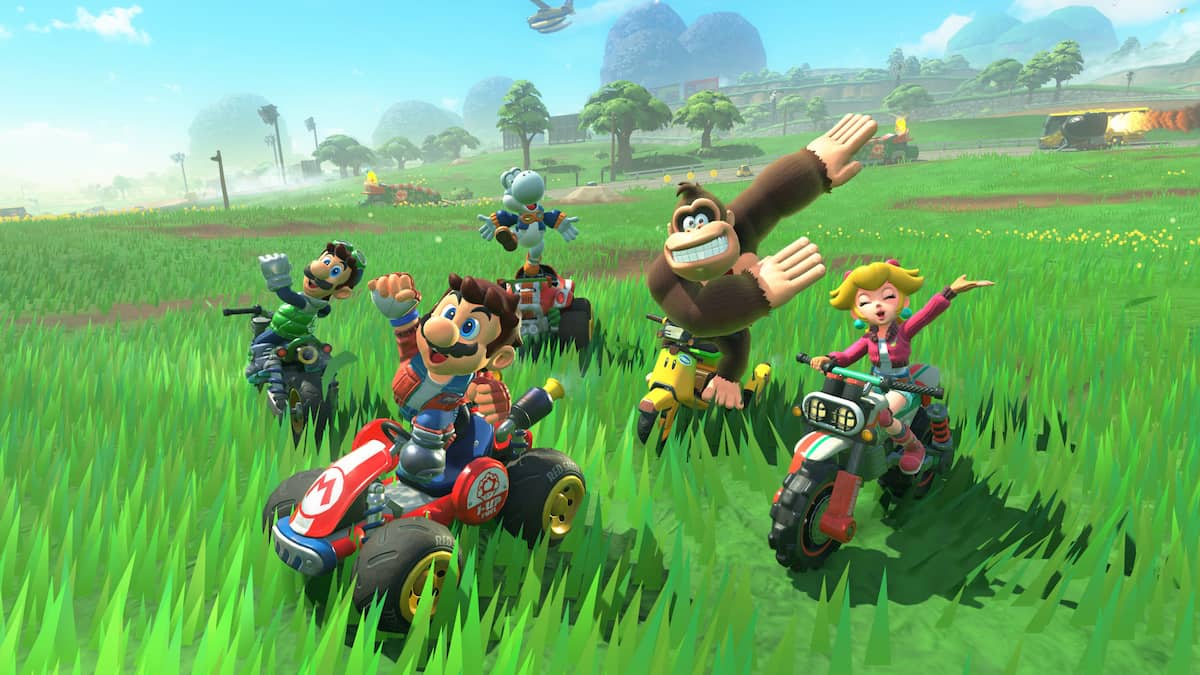This long-forgotten Monopoly game is still a joy to play (and absolutely bonkers)
Like with any board game, adapting Monopoly to the gaming world is a challenging proposition. You can slavishly stick to the original formula or turn it into a nightmarishly exploitative mobile game—or both. At least that seems to be the trend these days. Well, travel back two decades with me to find a lovely gem for an exception – one that used the Monopoly license as a springboard to create something unique. Monopolizing my free time While the gameplay and execution are quite imaginative for this Monopoly tycoon game, its title—Monopoly Tycoon—most definitely is not. But hey, we are talking 2001 here, a time of RollerCoaster Tycoon and Transport Tycoon and Tycoon Game Maker Tycoon (ok, that one might be fake), so it made sense to capitalize on the craze. And it’s not like it’s an inaccurate title. You are looking at a business sim, one that takes the Monopoly game board and reimagines it as distinct plots of land that you can build businesses and apartments on. Your utilities and railroads are also present, and – here is the key part – every square of real estate can go up for sale at an auction. The city is your oyster. Screenshot by Destructoid Otherwise, it would be like any run-of-the-mill business empire, plopping down shops based on what the peeps would like to buy, adjusting (read: jacking up) the prices wherever possible and jockeying for space and market share with your business rivals. But things get a whole lot more hectic once the auctions roll around, giving you an opportunity to outright buy specific map squares, which will stop anyone else from building on them (and force them to pay you rent for the shops that are already there), and should you get a monopoly by buying up all squares of the same color, make them watch helplessly as you buy out their stores at discounted prices. Apartments, hotels, and bankruptcy also come into play, making for some fun chaos. The presentation also adds a lot to the charm. Your opponents are all based on the various classic Monopoly board pieces. Battleship is a captain with a navy hat, a white beard, and a funky shirt. Top Hat is a magician. Iron is a kind old lady with a tea set. Racecar is a racer with a moustache so Tom Selleck that he must be compensating for something. Cannon is a cigar-chomping army man. You get the point. A colorful cast. Screenshot by Destructoid The shops themselves appear out of nowhere and expand rapidly, accompanied by the sound of an air pump, giving everything a cartoonish vibe. In what must be the wet dream of a marketer somewhere, every citizen is carrying a colorful tote bag based on whose shop they last spent money in, making it easily identifiable who is dominating any given area of the city. Whenever a sale is made, green bills literally fly into your account in the top right corner, accompanied by cash machine sounds and a nice bit of dopamine. As the dreaded 6am timeslot approaches – this is when you pay your utility bills and stock up your stores, so it’s often a huge expense – a scary alarm signal plays as you get ready to watch your money disappear. It’s all good fun and doesn’t take itself too seriously. Sometimes I flew the camera to the luscious park in the middle of the city, sook out the giant statue of Mr. Monopoly, and asked it for advice. Also, goodness me, the soundtrack has no right to slap this hard. Every day is a five-year period in the game, and each decade has a separate soundtrack – from the mellow trumpets of the ‘30s to the ‘70s disco vibes and the “we’re almost in the future” electronica of the ‘90s, it’s banger after banger after banger – and the main menu theme makes me want to run to the nearest shop, buy out its owner, and embark on a business adventure right here, right now… https://www.youtube.com/watch?v=P9cXWQJC3Bk It’s as American Dream as it can get. Capitalism for dummies Returning to the game as an adult, I found that it does a good job of getting some basic capitalistic tenets across. You have a near-infinite free line of credit, meaning you can go very far into the red, with the caveat that if you have a negative balance at midnight, you have to end the next day in the black or get eliminated via bankruptcy. So the optimal strat is to go nuts on your business empire in 1930, risk bankruptcy in 1935, barely make your money back by 1940, then repeat the process again. It also doesn’t hurt if you find the real moneymakers of the game: residential buildings and taking advantage of monopolies. Whatever cash is, it certainly is not king. Screenshot by Destructoid You can build apartments to house the residents of the city – there are no private homes at all, making for a somewhat dystopian affair. They pay their fees at 6am, giving you a good cushion for that dreaded time of day. It’s a good racket, but it won’t win you the game – you want to secure a monopoly at any cost—and the AI will make you pay top dollar for each property as you get closer
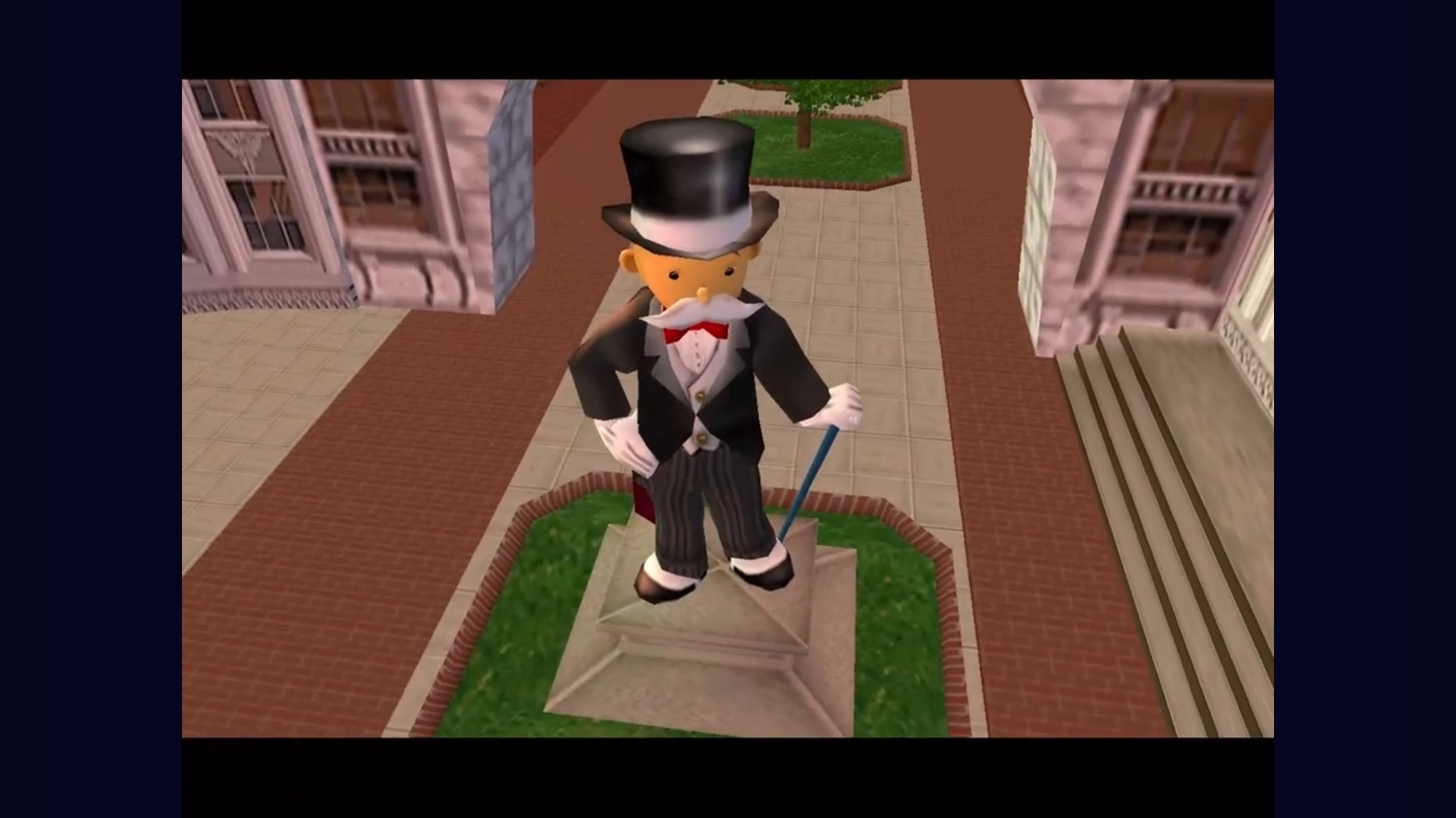
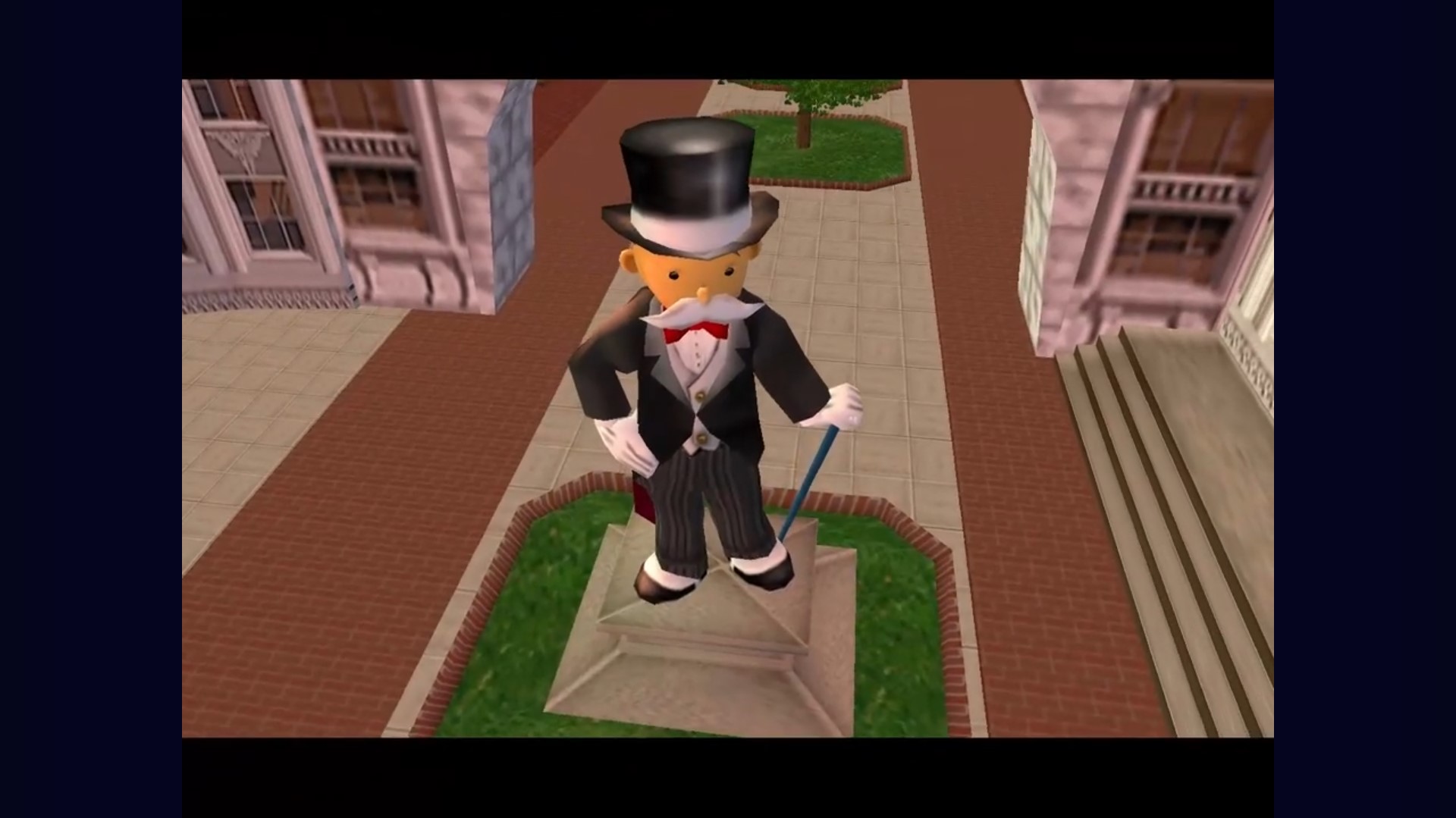
Like with any board game, adapting Monopoly to the gaming world is a challenging proposition. You can slavishly stick to the original formula or turn it into a nightmarishly exploitative mobile game—or both. At least that seems to be the trend these days.
Well, travel back two decades with me to find a lovely gem for an exception – one that used the Monopoly license as a springboard to create something unique.
Monopolizing my free time
While the gameplay and execution are quite imaginative for this Monopoly tycoon game, its title—Monopoly Tycoon—most definitely is not. But hey, we are talking 2001 here, a time of RollerCoaster Tycoon and Transport Tycoon and Tycoon Game Maker Tycoon (ok, that one might be fake), so it made sense to capitalize on the craze.
And it’s not like it’s an inaccurate title. You are looking at a business sim, one that takes the Monopoly game board and reimagines it as distinct plots of land that you can build businesses and apartments on. Your utilities and railroads are also present, and – here is the key part – every square of real estate can go up for sale at an auction.
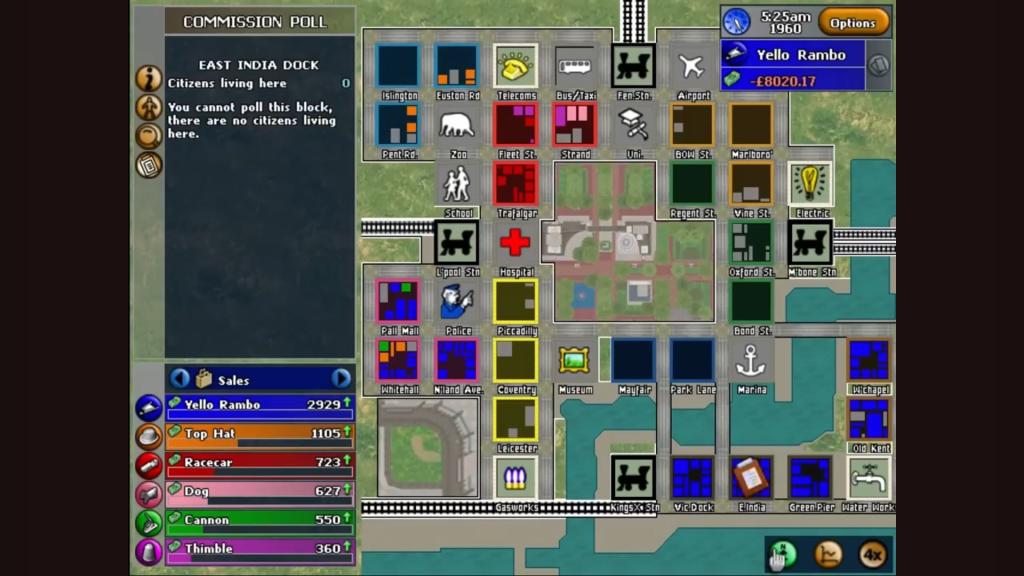
Otherwise, it would be like any run-of-the-mill business empire, plopping down shops based on what the peeps would like to buy, adjusting (read: jacking up) the prices wherever possible and jockeying for space and market share with your business rivals. But things get a whole lot more hectic once the auctions roll around, giving you an opportunity to outright buy specific map squares, which will stop anyone else from building on them (and force them to pay you rent for the shops that are already there), and should you get a monopoly by buying up all squares of the same color, make them watch helplessly as you buy out their stores at discounted prices. Apartments, hotels, and bankruptcy also come into play, making for some fun chaos.
The presentation also adds a lot to the charm. Your opponents are all based on the various classic Monopoly board pieces. Battleship is a captain with a navy hat, a white beard, and a funky shirt. Top Hat is a magician. Iron is a kind old lady with a tea set. Racecar is a racer with a moustache so Tom Selleck that he must be compensating for something. Cannon is a cigar-chomping army man. You get the point.
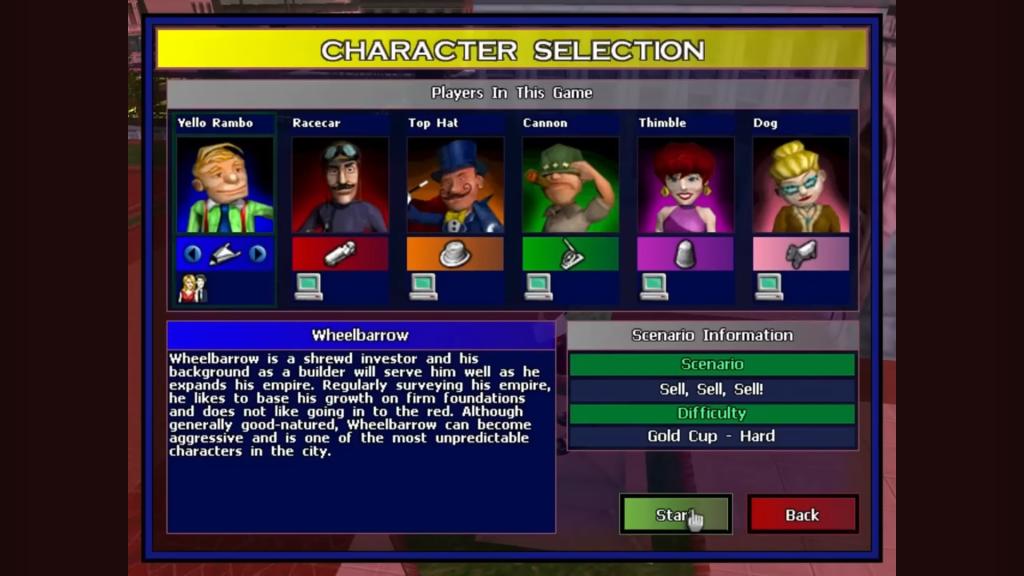
The shops themselves appear out of nowhere and expand rapidly, accompanied by the sound of an air pump, giving everything a cartoonish vibe. In what must be the wet dream of a marketer somewhere, every citizen is carrying a colorful tote bag based on whose shop they last spent money in, making it easily identifiable who is dominating any given area of the city.
Whenever a sale is made, green bills literally fly into your account in the top right corner, accompanied by cash machine sounds and a nice bit of dopamine. As the dreaded 6am timeslot approaches – this is when you pay your utility bills and stock up your stores, so it’s often a huge expense – a scary alarm signal plays as you get ready to watch your money disappear. It’s all good fun and doesn’t take itself too seriously. Sometimes I flew the camera to the luscious park in the middle of the city, sook out the giant statue of Mr. Monopoly, and asked it for advice.
Also, goodness me, the soundtrack has no right to slap this hard. Every day is a five-year period in the game, and each decade has a separate soundtrack – from the mellow trumpets of the ‘30s to the ‘70s disco vibes and the “we’re almost in the future” electronica of the ‘90s, it’s banger after banger after banger – and the main menu theme makes me want to run to the nearest shop, buy out its owner, and embark on a business adventure right here, right now…
It’s as American Dream as it can get.
Capitalism for dummies
Returning to the game as an adult, I found that it does a good job of getting some basic capitalistic tenets across. You have a near-infinite free line of credit, meaning you can go very far into the red, with the caveat that if you have a negative balance at midnight, you have to end the next day in the black or get eliminated via bankruptcy.
So the optimal strat is to go nuts on your business empire in 1930, risk bankruptcy in 1935, barely make your money back by 1940, then repeat the process again. It also doesn’t hurt if you find the real moneymakers of the game: residential buildings and taking advantage of monopolies.
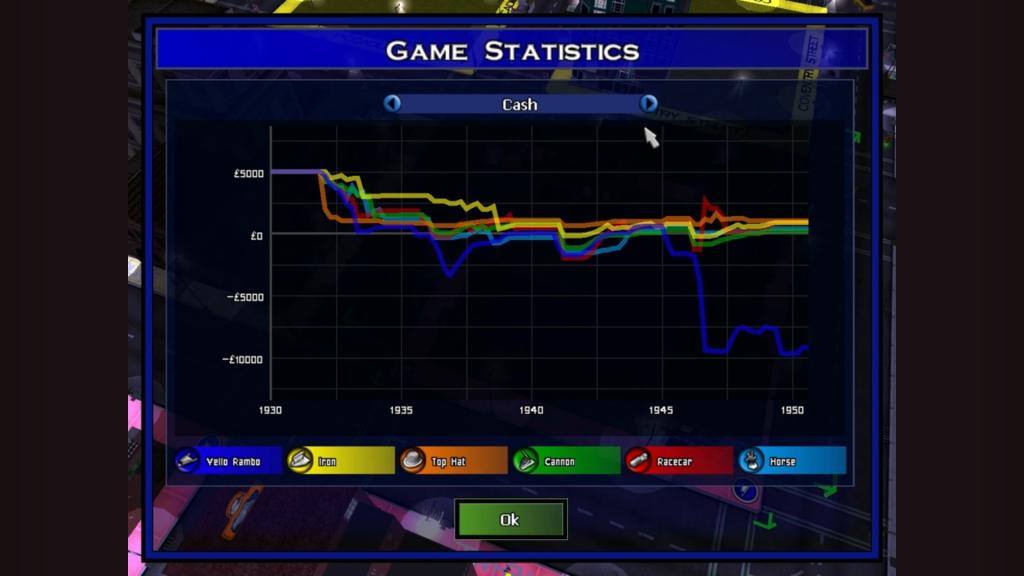
You can build apartments to house the residents of the city – there are no private homes at all, making for a somewhat dystopian affair. They pay their fees at 6am, giving you a good cushion for that dreaded time of day. It’s a good racket, but it won’t win you the game – you want to secure a monopoly at any cost—and the AI will make you pay top dollar for each property as you get closer to this goal—then wait for the rental payout the following day before buying out your opponents’ stores. This will usually crush them in whatever business metric the scenario calls for while bolstering your own, so all you need to do is not go bankrupt. The fact that monopolies also allow you to build hotels to get exorbitant income for each visitor is just a cherry on top.
I always found that the light brown locations (Old Kent Road and Whitechapel Road) are the best way to go for your first monopoly: you only need to secure two of them, and they are nominally the cheapest on the board. From then on, the world is your oyster.
Scenarios range from daily profit quotas to total business empire value to getting a certain number of sales or winning elections, but this approach will always serve you well.
I got quite far into the game as a kid, but never quite cracked the code – and while I think I found the optimal strategy, I’d still struggle on the later levels if I were to force myself to try something else. But even if that’s the only reliable way to win, it is a ton of fun to execute the strat over and over again. I wonder how cutthroat the game would be in a proper multiplayer setting—which the game does support, but, you know, good luck finding a game these days for something that relied on GameSpy.
Monopoly Tycoon was a commercial slow burner, but it ultimately sold almost two million copies by 2006, five years after its release. Unfortunately, developer Deep Red Games (now DR Studios) has never quite lived up to its promise with their later projects, though I was surprised to see that they apparently developed Terraria’s mobile and console ports.
Now, if you’ll excuse me, I’ll go back to listening to the soundtrack.
The post This long-forgotten Monopoly game is still a joy to play (and absolutely bonkers) appeared first on Destructoid.
















































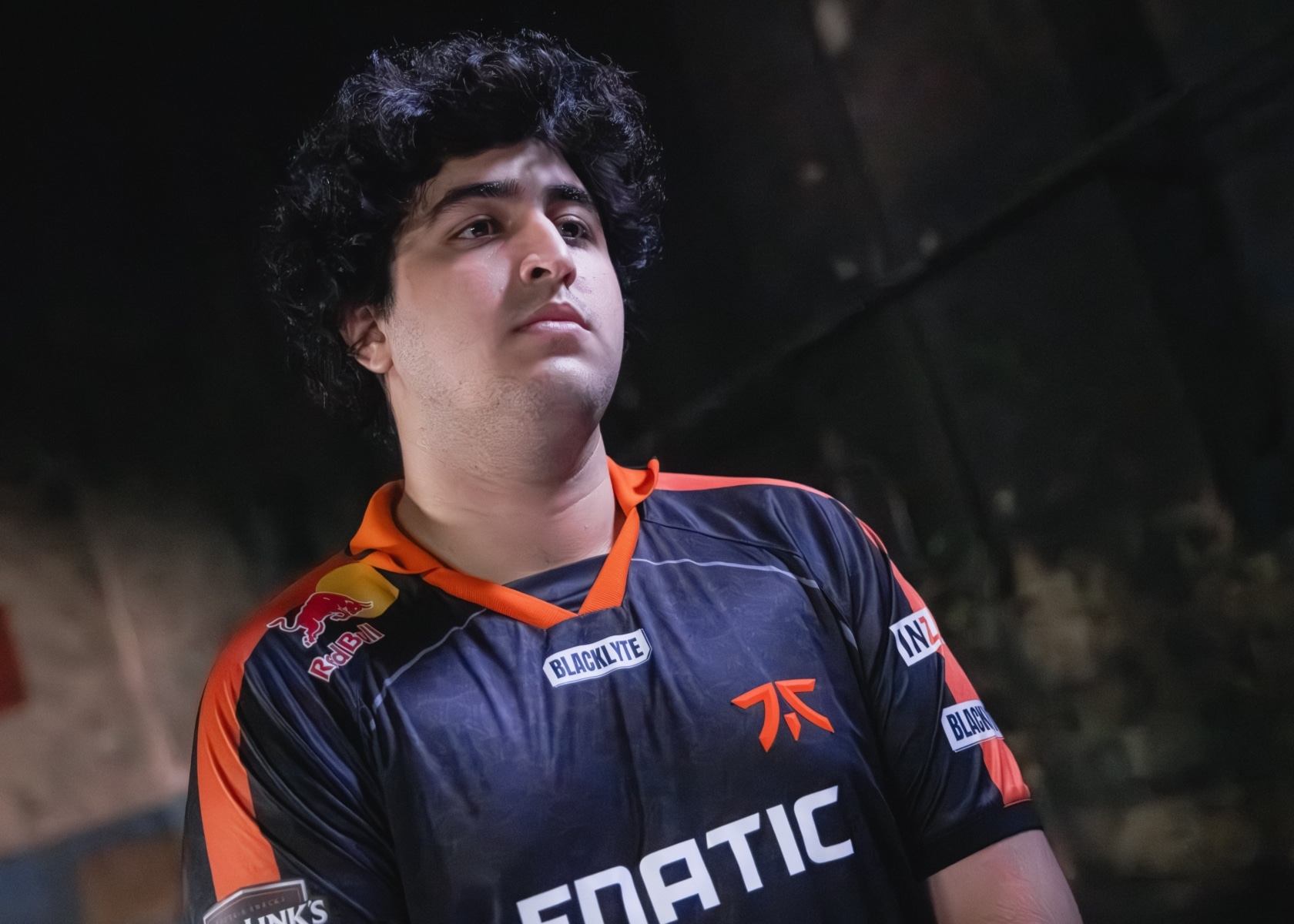




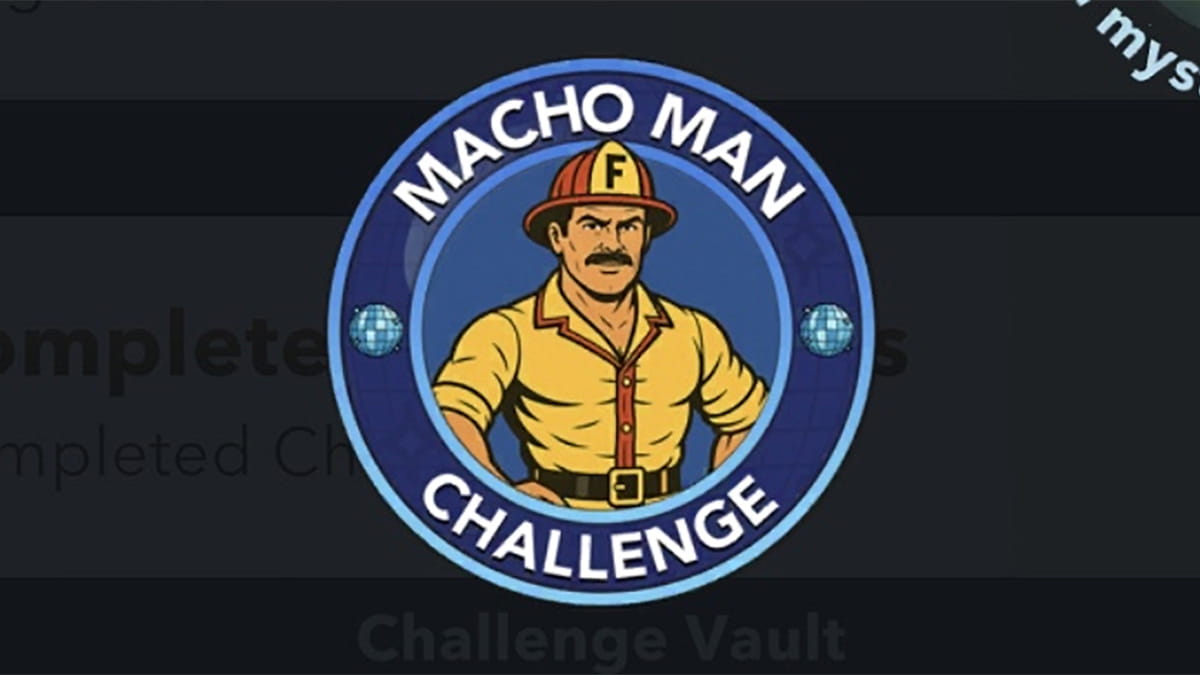
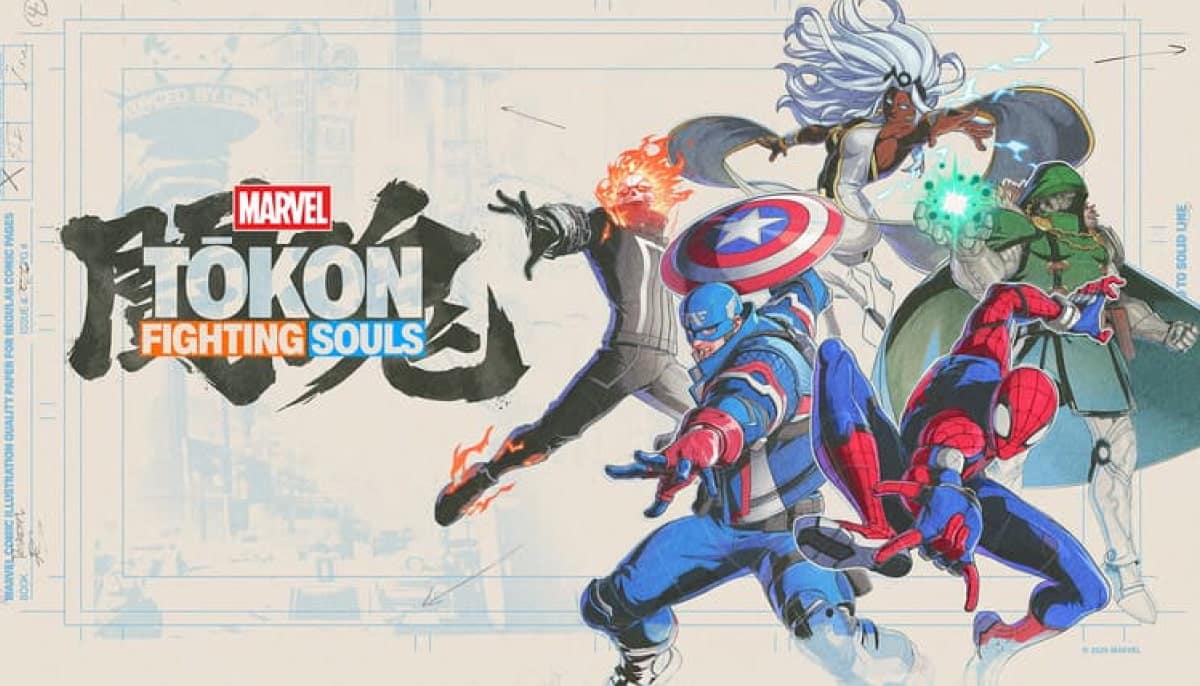
















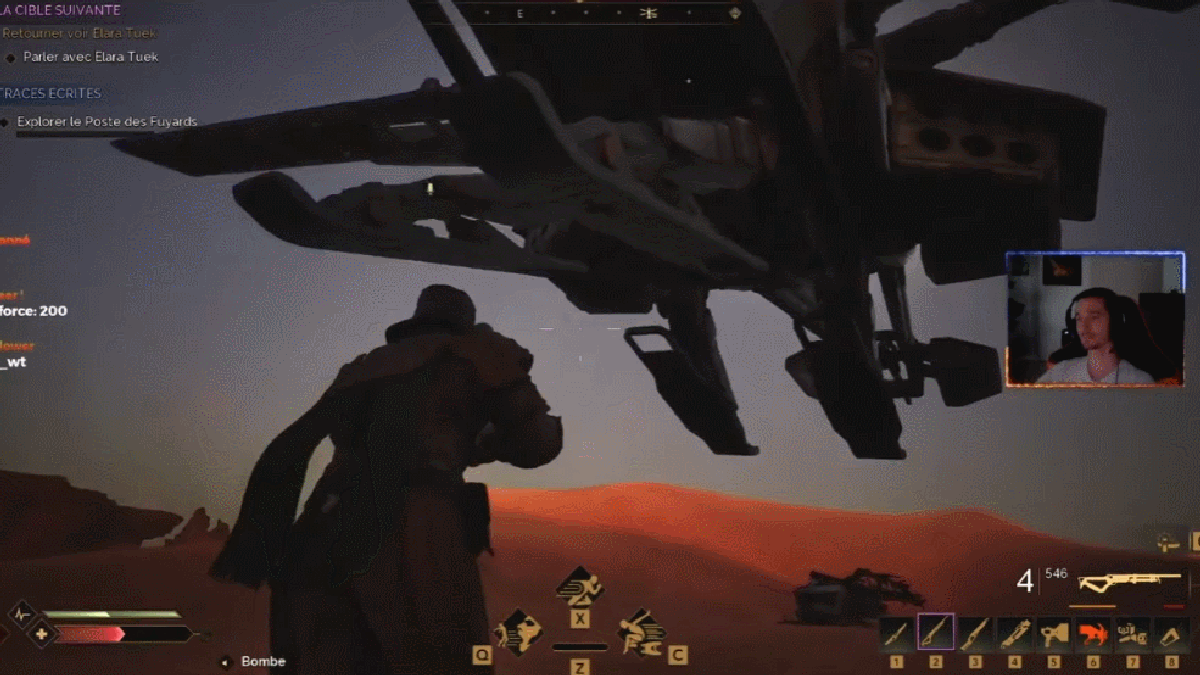
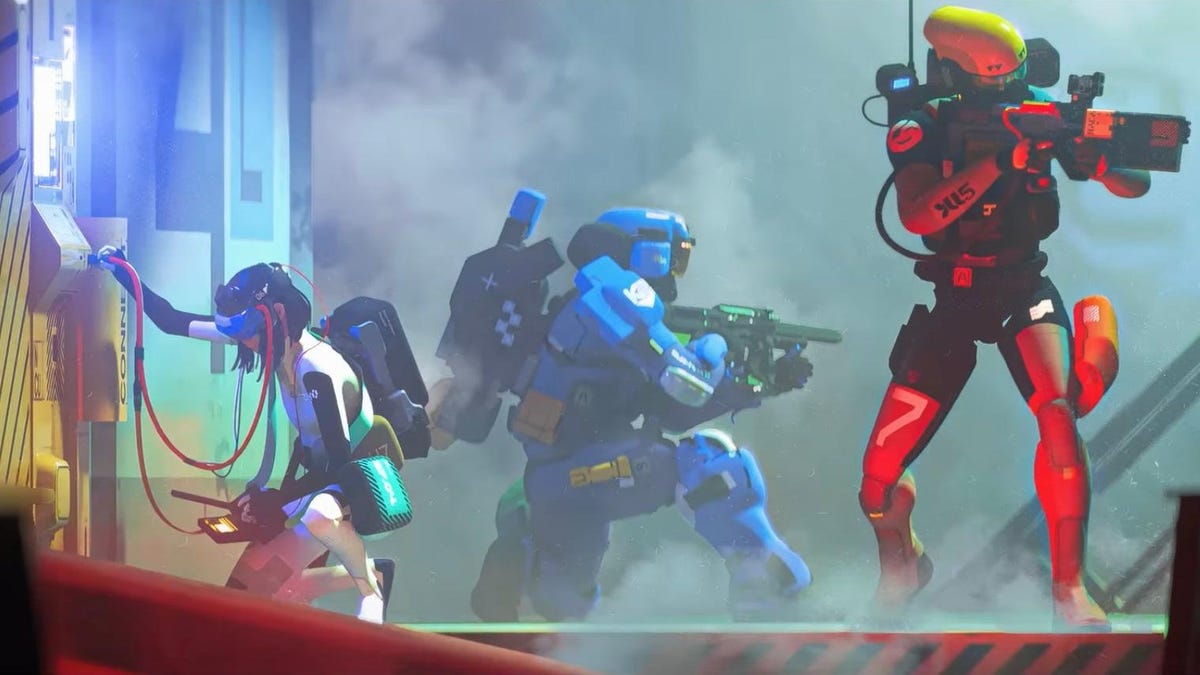








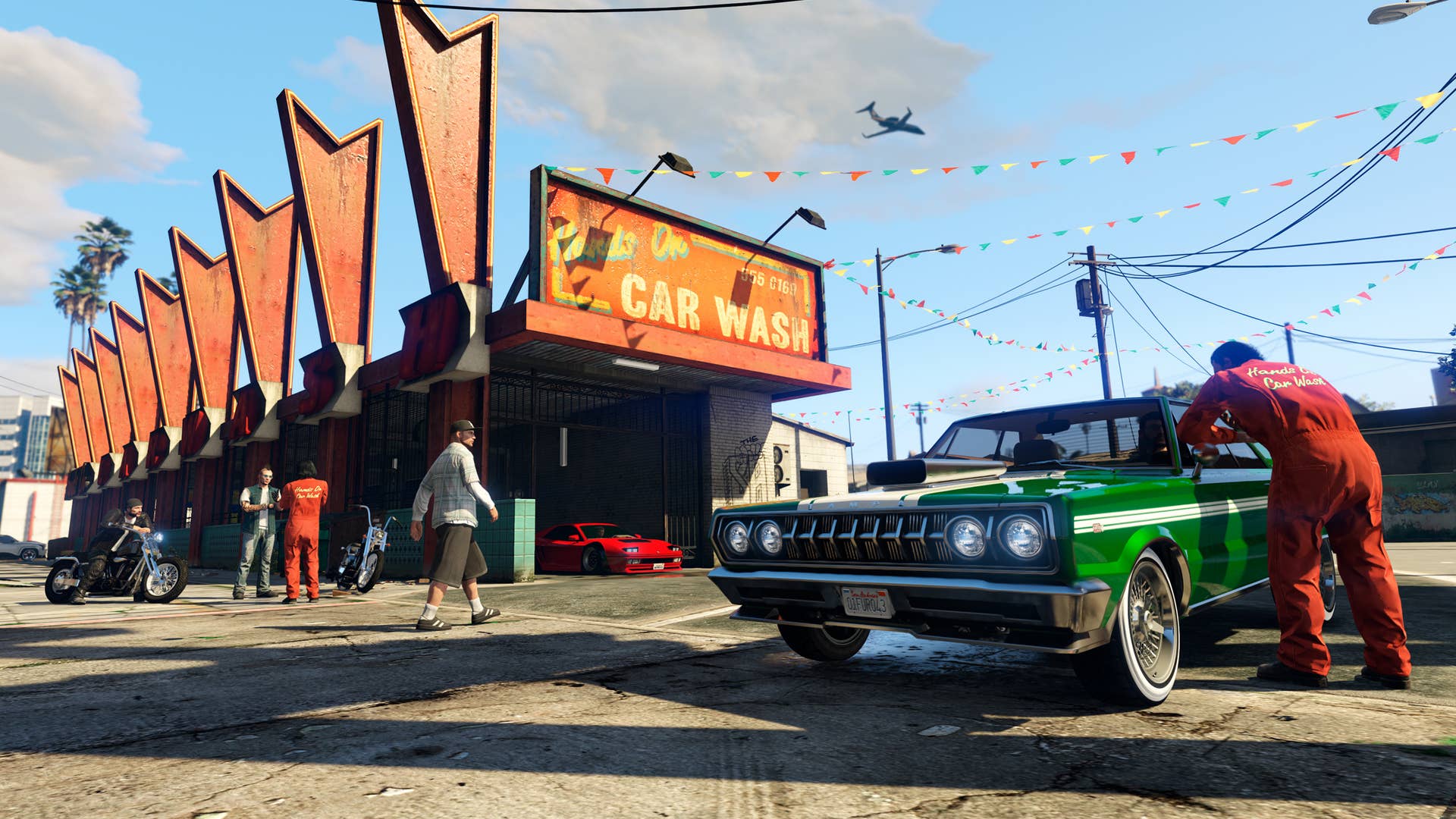
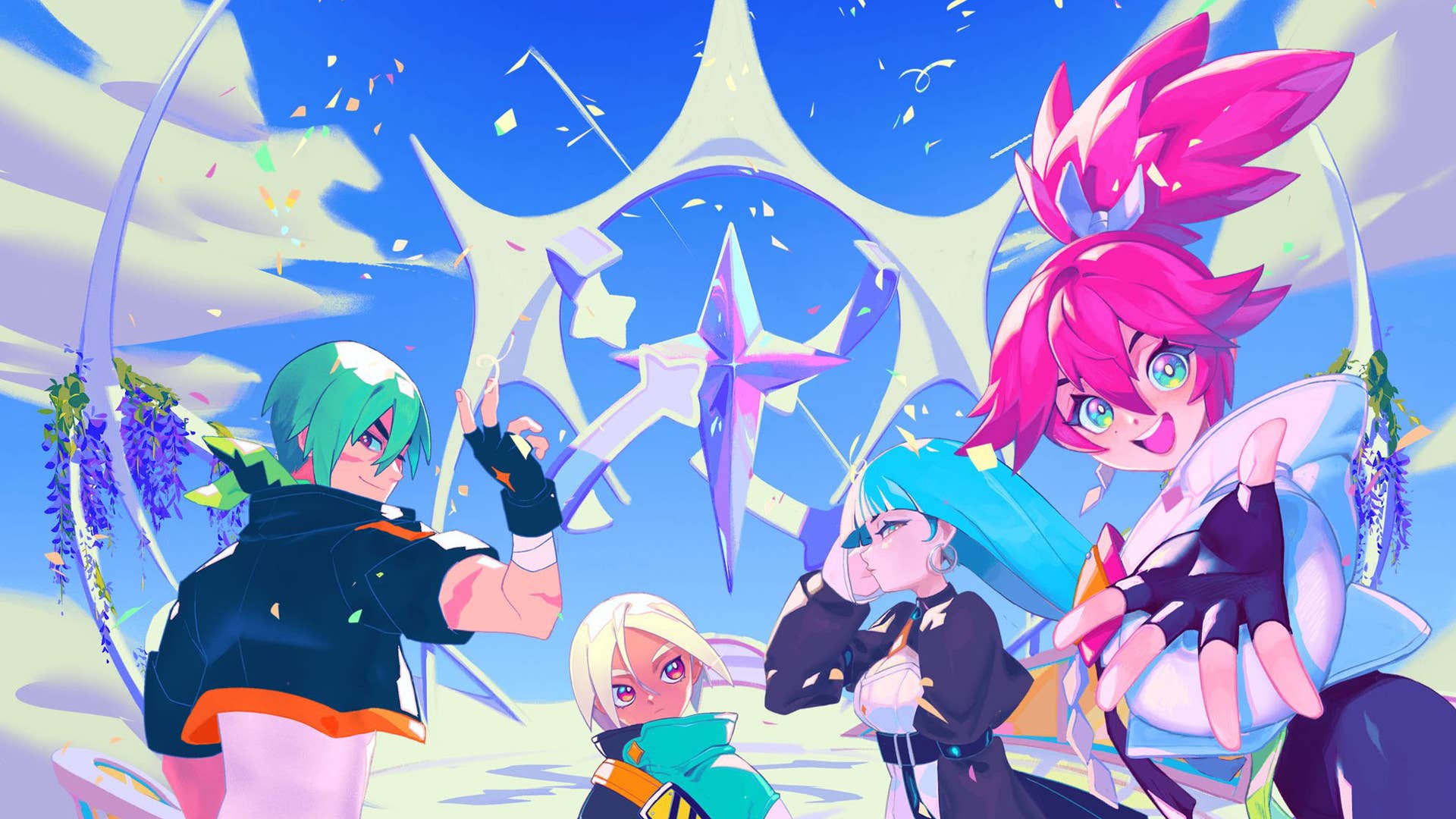
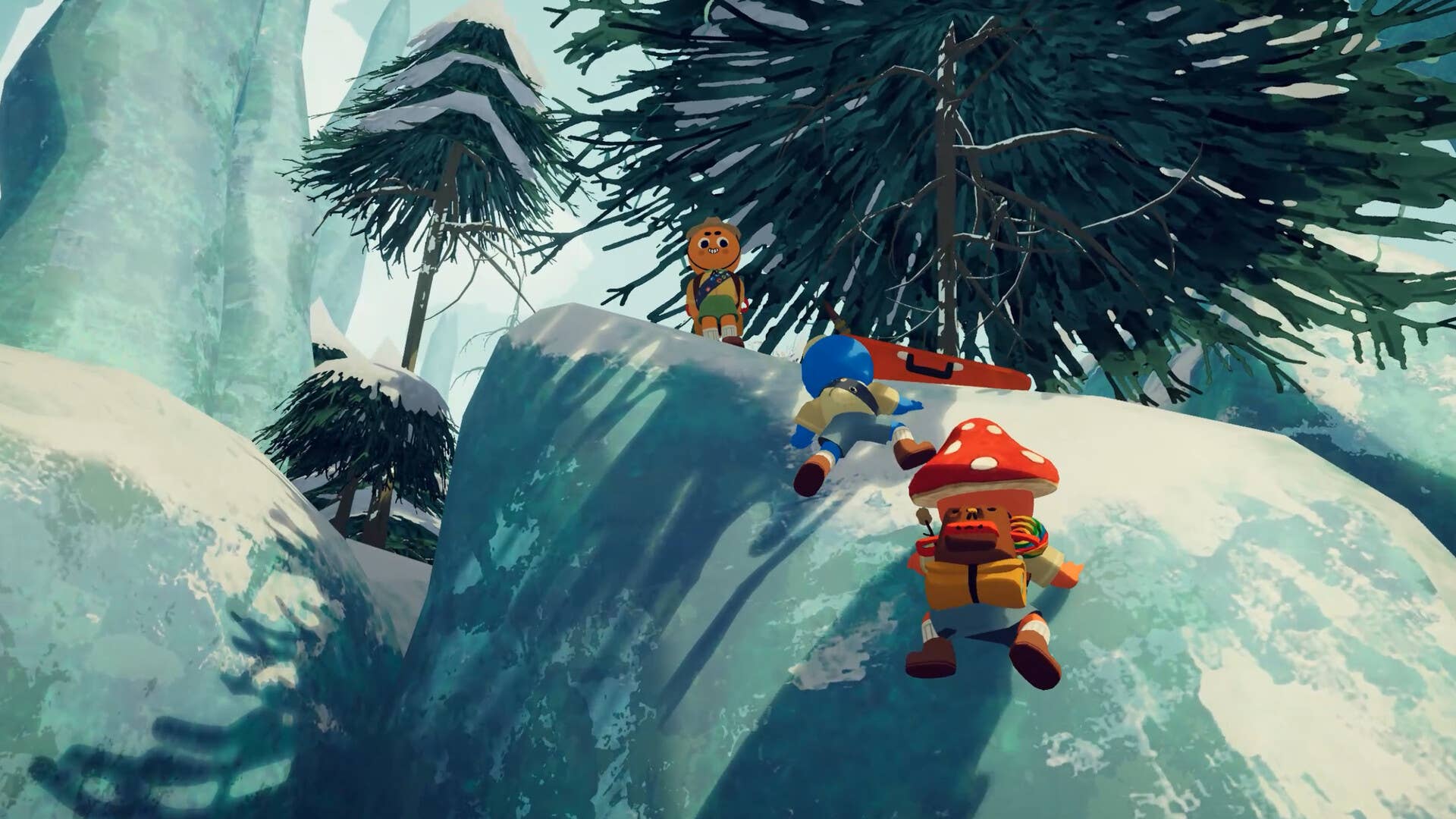
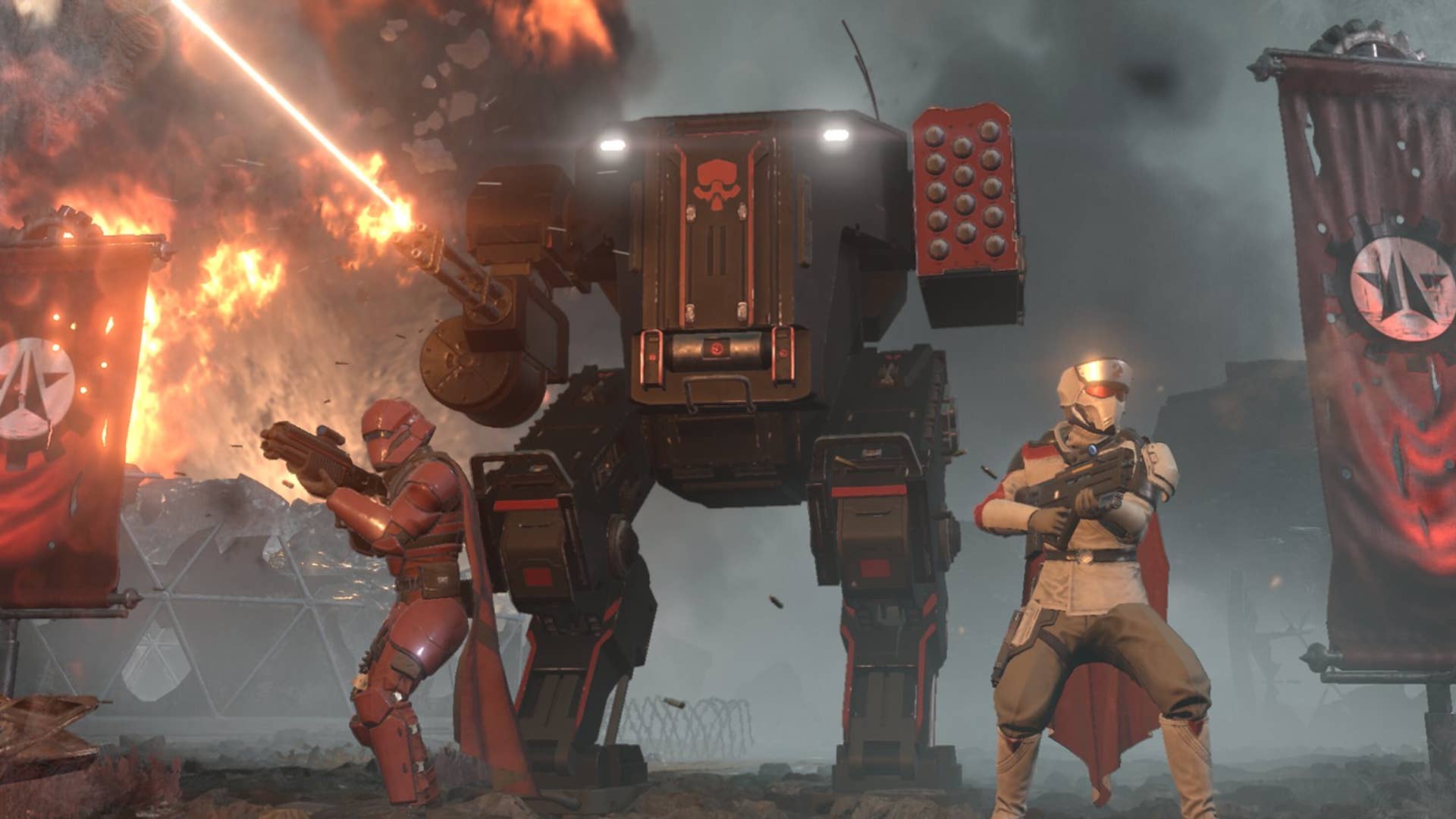













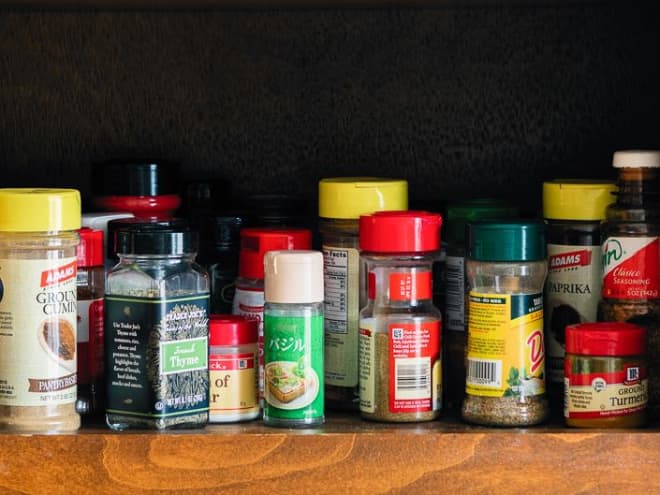
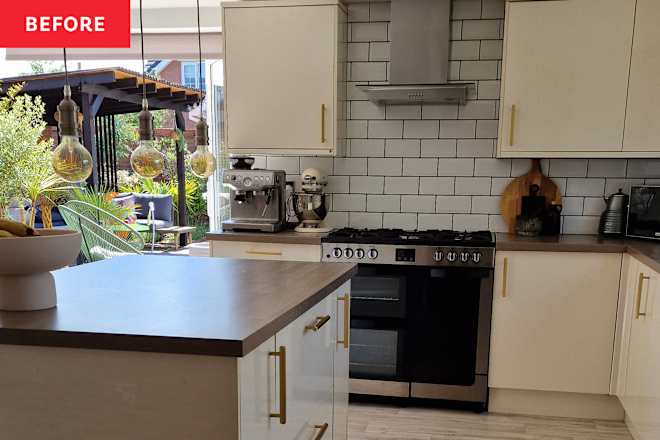
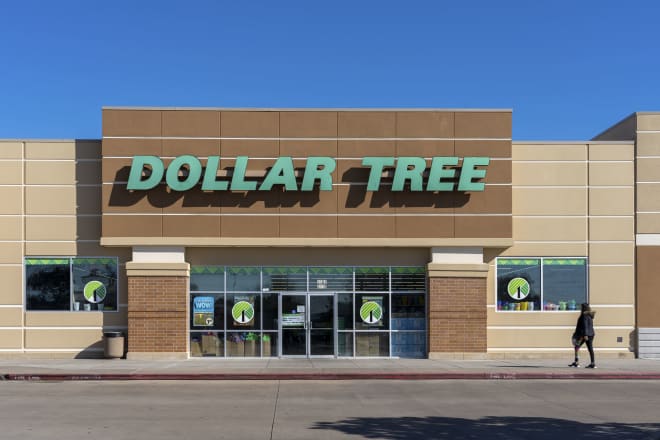











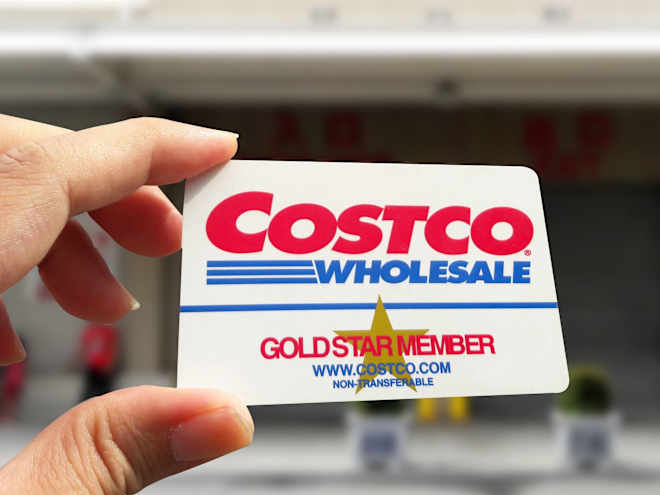
























































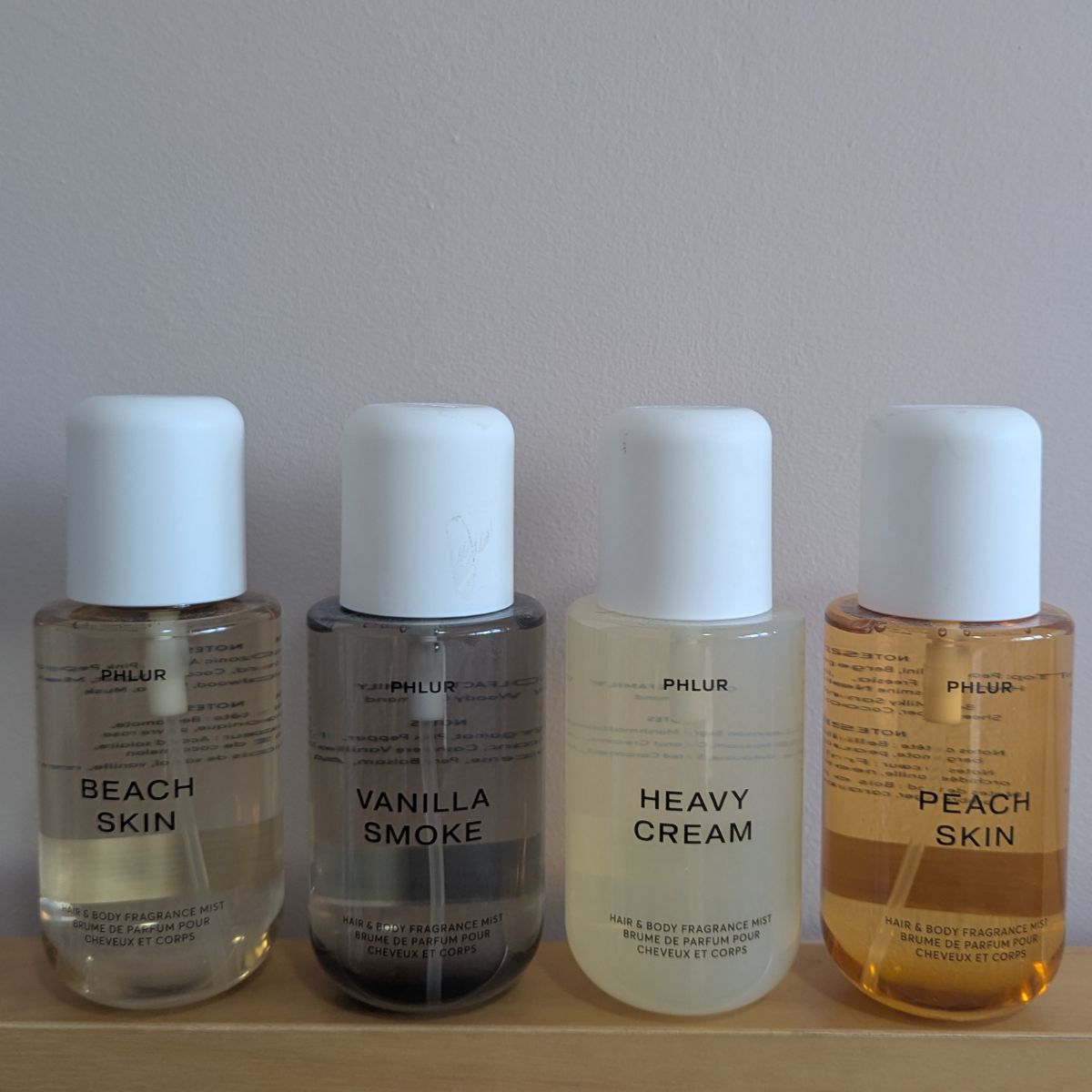



.jpg)




.jpg)



